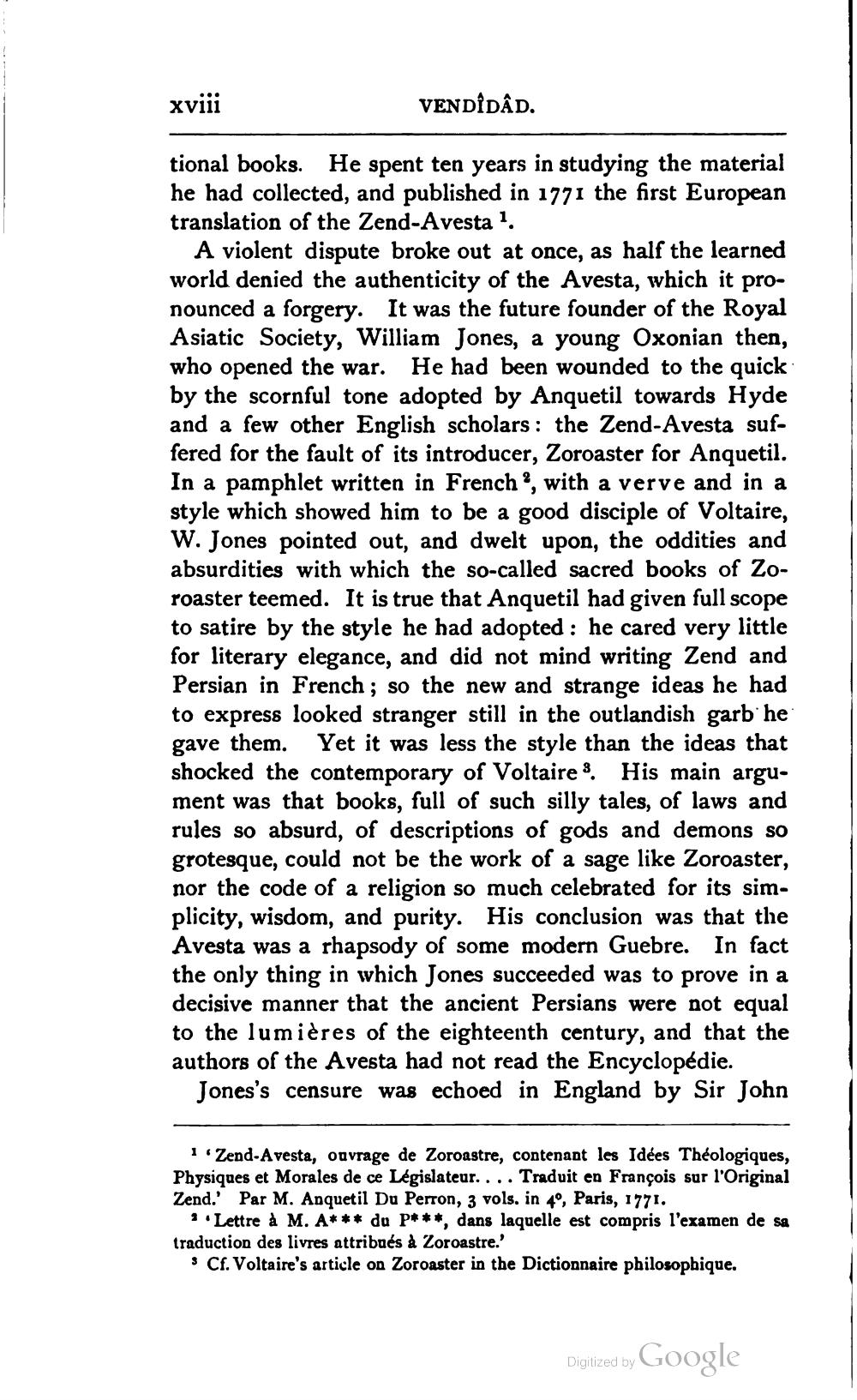________________
xviii
VENDIDAD.
tional books. He spent ten years in studying the material he had collected, and published in 1771 the first European translation of the Zend-Avesta 1.
A violent dispute broke out at once, as half the learned world denied the authenticity of the Avesta, which it pronounced a forgery. It was the future founder of the Royal Asiatic Society, William Jones, a young Oxonian then, who opened the war. He had been wounded to the quick by the scornful tone adopted by Anquetil towards Hyde and a few other English scholars: the Zend-Avesta suffered for the fault of its introducer, Zoroaster for Anquetil. In a pamphlet written in French, with a verve and in a style which showed him to be a good disciple of Voltaire, W. Jones pointed out, and dwelt upon, the oddities and absurdities with which the so-called sacred books of Zoroaster teemed. It is true that Anquetil had given full scope to satire by the style he had adopted: he cared very little for literary elegance, and did not mind writing Zend and Persian in French; so the new and strange ideas he had to express looked stranger still in the outlandish garb het gave them. Yet it was less the style than the ideas that shocked the contemporary of Voltaire. His main argument was that books, full of such silly tales, of laws and rules so absurd, of descriptions of gods and demons so grotesque, could not be the work of a sage like Zoroaster, nor the code of a religion so much celebrated for its simplicity, wisdom, and purity. His conclusion was that the Avesta was a rhapsody of some modern Guebre. In fact the only thing in which Jones succeeded was to prove in a decisive manner that the ancient Persians were not equal to the lumières of the eighteenth century, and that the authors of the Avesta had not read the Encyclopédie.
Jones's censure was echoed in England by Sir John
1 'Zend-Avesta, ouvrage de Zoroastre, contenant les Idées Théologiques, Physiques et Morales de ce Législateur.... Traduit en François sur l'Original Zend.' Par M. Anquetil Du Perron, 3 vols. in 4°, Paris, 1771.
Lettre à M. A*** du P***, dans laquelle est compris l'examen de sa traduction des livres attribués à Zoroastre.'
3 Cf. Voltaire's article on Zoroaster in the Dictionnaire philosophique.
Digitized by
Google




